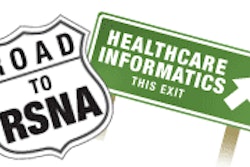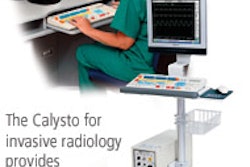DALLAS - Generally, when administrative simplification is mandated by a government agency, the result is enhanced organizational complexity. However, in the case of an exception proving the rule, the enactment of the HIPAA Transaction Code Set (TCS) requirement for electronic data interchange (EDI) has created an opportunity for savvy administrators to tap into a standard flow of data.
"Transaction-based business intelligence is the use of standard healthcare transactions to provide actionable information about the data that is entering and leaving an organization, independent of the sending or receiving systems," said Dr. Joseph Nichols in a presentation yesterday at the Healthcare Information and Management Systems Society (HIMSS) conference.
Nichols, who is director of healthcare solutions for Bellevue, WA-based business-to-business developer Edifecs, said that new opportunities to acquire actionable information have become available due to HIPAA legislation.
"Healthcare has traditionally operated in silos, with each entity providing similar products and services and processing similar information in a very proprietary way," he said.
According to Nichols, the challenges industry has faced in the sharing of information in non-standard environments has resulted in confusion, excessive administrative costs, and limited intelligence about healthcare delivery in the population -- and this has compromised the safe and effective care of patients. HIPAA, Nichols said, delivered a mandate and a focal point for the development of standards by requiring a single standard and code set.
"Despite the onerous nature of a governmental mandate, the process of convergence on a standard would probably not be happening without the HIPAA law," he said.
Data mining
Nichols listed five steps to getting to actionable information from transaction-based business data:
- Defining the business problem
- Asking the right business questions
- Analyzing the results
- Defining potential actions
- Defining the value of action
As an example, he offered the case of a provider clinic that identified an increasing trend in claim denials, which resulted in a significant impact on the practice's cash flow. However, the problem did not appear to be related to an issue with the electronic submission of claims.
Nichols defined four business questions that providers can ask in such situations:
- Is there a common pattern in the reasons for denial?
- What are the most common types of services that are associated with denials?
- Which payors are most frequently associated with denials?
- Are these denials more common with a specific rendering provider?
Once the business questions have been determined, the transaction data can be queried and the results analyzed by claim denial type, by cost impact, by payor, by physician provider, and by patient. In turn, categorization offers the opportunity to define potential actions such as tightening eligibility processes at scheduling, changing coding procedures, enhancing communication with patients regarding coverage issues, and educating specific physician providers about coverage policies.
The value of the actions can be defined as achieving a measurable improvement in cash flow as a result of new processes; improved patient relationships; and less rebilling and distractive denial management, he said.
The advantages of transaction-based business intelligence are automated auditing capabilities, opportunities for practice benchmarking, minimal dependencies on legacy integration, business information independent of a data source, and limited IT resource requirements, Nichols observed.
"HIPAA TCS standards adoption allows apples-to-apples comparisons to be conducted for the first time in U.S. healthcare," he said.
By Jonathan S. Batchelor
AuntMinnie.com staff writer
February 17, 2005
Related Reading
IHE assists regional health architecture, February 15, 2005
HIPAA security: IHE guidelines help ensure compliance, November 26, 2004
IHE's IT infrastructure starts comment period, June 18, 2004
IHE cardiology technical framework open for comment, June 17, 2004
IHE to test portable data integration profile, June 8, 2004
Copyright © 2005 AuntMinnie.com



















